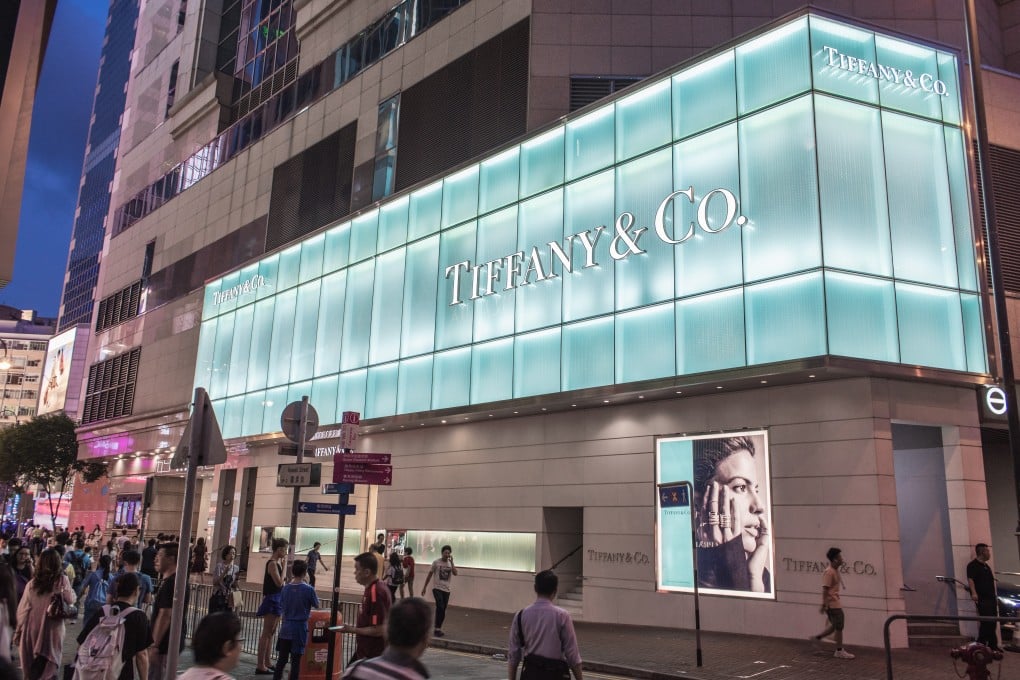Tiffany says protests ‘taking a toll’ on its Hong Kong business as it reports drop in net sales in second quarter
- Sales fell 3 per cent, net earnings dropped 6 per cent in second quarter
- American jewellery seller says it lost nearly six selling days due to unplanned store closures

American jeweller Tiffany & Co. warned it sees a sluggish market in Hong Kong going forward as the social unrest in the city cut into its worldwide net sales in the second quarter.
Global reported sales decreased 3 per cent and net earnings fell 6 per cent in the second quarter, on the back of a significant decline in both sales attributed to Chinese and all other tourists and business disruption in Hong Kong, the company said in their quarterly earnings report.
“In Hong Kong, where we have 10 stores and which is our fourth biggest market relative to total sales, only after the United States, Japan and mainland China, [we have] been presented with a unique set of challenges,” said chief executive Alessandro Bogliolo on a conference call to discuss financial results for the second quarter.
“Obviously, we hope for a quick and peaceful resolution to the unrest being experienced there, but in the meantime, we must acknowledge that the current situation is taking a toll on our business. In fact, we estimate that during the second quarter we lost nearly six full selling days due to unplanned store closures,” said Bogliolo.